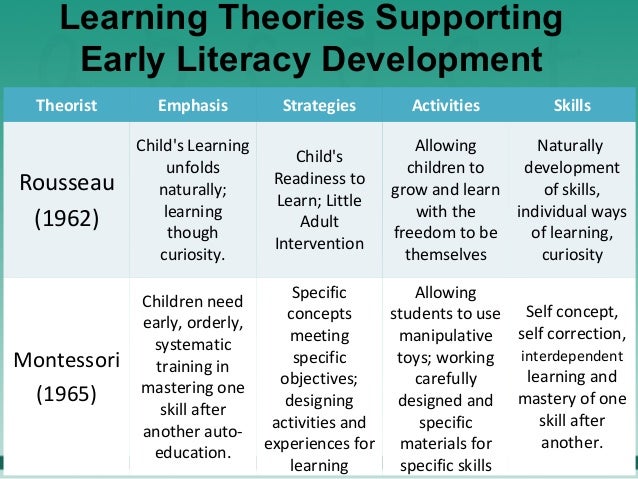The first two are considered deontic or action-based theories of morality because they focus entirely on the actions which a person performs. Ethical systems can generally be broken down into three categories.
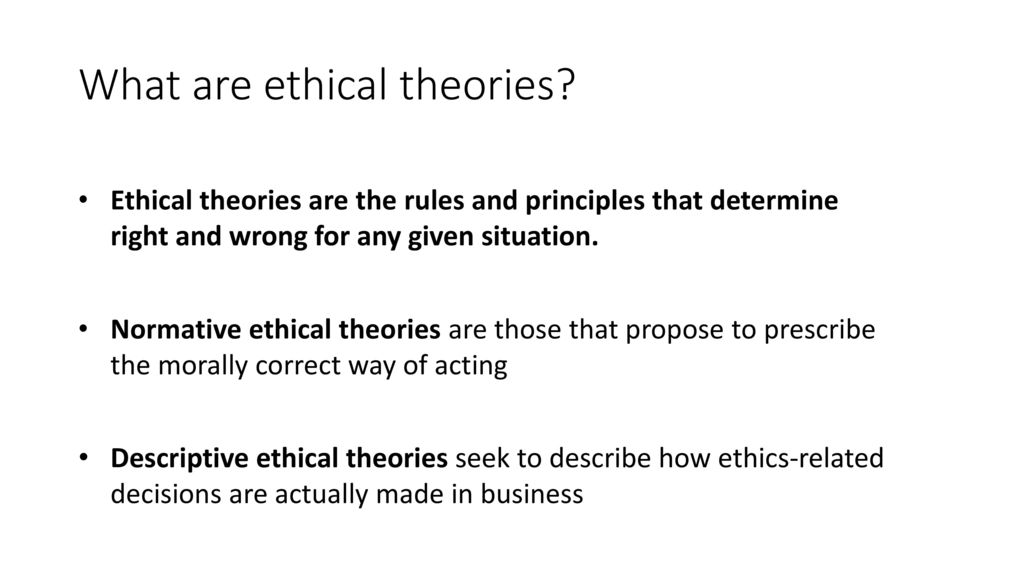 Session 3 Ethical Theories Ppt Download
Session 3 Ethical Theories Ppt Download
Also to know is which of the following is a theory in normative ethics.

What are the 3 main theories of ethics. What we understand when we talk about what is right or wrong. The three normative theories you are studying therefore illustrate three different sets of ideas about how we. The agent the person who perform the act the act itself and the consequences of the act.
The second prominent concept deontological ethics is associated with the father of modern. For any act normative ethics emphasizes on three elements. Virtue ethicists list a number of qualities that they believe are universal and that all cultures appreciate.
System Development Ethical Theories. Agenda Definition of terms Ethical theories Debatable issues Privacy encroachment issues Threats to privacy Property protection criminal issue Intellectual eg. Patent copyright law cybercrimes Personal and social issues Codes of Ethics in Computing 3.
It is the practice of learning Another term. Beauchamp and Childress suggest the five key virtues are. The three schools are virtue ethics consequentialist ethics and deontological or duty-based ethics.
I wouldnt call them theories however because this classification just describes the formal structure of an ethical theory. The three ethical theories are metaethics normative ethics and applied ethics. Each approach provides a different way to understand ethics.
This is one of the most controversial moral theories. Compassion discernment trustworthiness integrity and conscientiousness all habits that doctors and medical students should have. Ethics or moral philosophy is a branch of philosophy that involves systematizing defending and recommending concepts of right and wrong behavior.
Furthermore what are the 3 main theories of ethics. DefintionsIntroduction Ethics is the field of study that is concerned with questions of value ie judgments about what human behavior is good or bad in any given situation. It is important to get a sense of these different.
Therefore the best way to be moral is to constantly seek to improve oneself. These theories examine ethical behavior in different ways. Ethical Theories Utilitarian Ethics.
Theories of Ethics Thomas Lombardo Within human history and continuing into present times we find many theories of ethics and the good. Such theories arise in religion spiritual traditions philosophy social-political-historical systems literature and the humanities social and cultural movements and pop psychologies. These three theories of ethics utilitarian ethics deontological ethics virtue ethics form the foundation of normative ethics conversations.
Virtue ethics states that only good people can make good moral decisions. Another term for ethics is moral philosophy. The four major ethical theories are deontology utilitarianism rights and virtue.
They include wisdom prudence loyalty. Finally a third and. The three approaches to ethics are ethical skepticism which states that ethical standards are relative to a persons particular time and culture as opposed to universal approach deontological approach which states that people should identify and make use of a universal code in making ethical decisions and utilitarianism approach that states that decisions ought to be based on a comparison.
Deontological teleological and virtue-based ethics. These fields comprise the branch of philosophy called axiology. Ethics seeks to resolve questions of human morality by defining concepts such as good and evil right and.
Deontology utilitarianismconsequentialism and virtue ethics. These theories examine ethical behavior in. The idea is that ethical decisions are made based on the consequences of the action which is why it.
Meta-ethics is concerned with the theoretical meaning of morality and ethical principles ie. The field of ethics along with aesthetics concerns matters of value. Further ethics can be classified into three major study areas.
A theory following either structure can actually be spelled out in various ways.
The first stage stage 0 extends from birth to first grade. Theories of learning and early literacy 1.
From Vygotsky to Piaget and Bloom to.
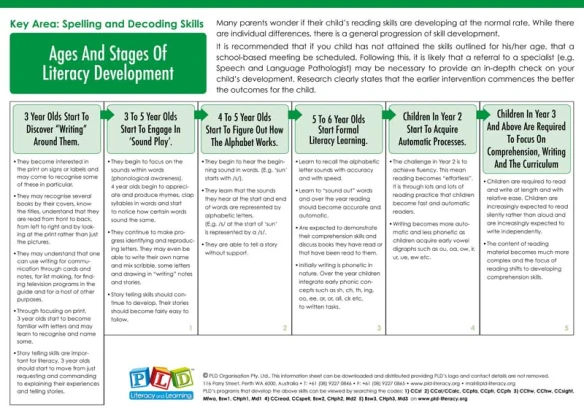
Theories of literacy learning. In this article you will find a breakdown of each one and an explanation of the 15 most influential learning theories. The concept of emergent literacy. His theory of learning suggests that people learn within a social context and that learning is facilitated through concepts such as modeling observational learning and imitation.
For example looking at language within a larger social and cultural context. These first five years of life display. Learners are trusted to.
There are 3 main schemas of learning theories. The Major Theories and Theorists of Literacy Learning and Language Development. Learning semiotic systems and literacies 1 Using semiotic systems and literacies to learn about other things 2 Learning about how semiotic systems and literacies operate and function in society 3 Durrant and Green 2000 suggest that any literacy pedagogy must include three dimensions of.
The different theories present in Literacy Development clearly suggest that reading should match the level of development of each child as he progresses into higher levels of learning. Their motor information is how they move and handle objects in space. Responses that are reinforced increase in frequency and responses that are not reinforced are extinguished.
According to behaviorism we are passive receivers of knowledge rather than active constructors. Bandura put forward reciprocal determininsm that holds the view that a persons behavior environment and personal qualities all reciprocally influence each others. THEORIES OF LEARNING AND EARLY LITERACY 2.
We should always remember that how students learn is a s important bas what they learn. What Is the Piaget Reading Theory. DEFINITION OF EMERGENT LITERACY Emergent literacy is a term first used by Marie Clay to describe how young.
The skills acquired from literacy and language are applicable in other subjects such as math social studies and sciences. Maslows research on the Hierarchy of Needs is a major concept within this theory as it focuses on the whole person specifically the cognitive and affective needs of the learner. The literacy skills of readers maybe of little value if teachers lack disposition.
5 theories of literacy development 1. At home with story telling events that include. Emergent Literacy Theory Emergent literacy theory was developed by New Zealand educator Marie Clay and changed educators understandings of literacy.
Piagets theory in a nutshell was that children begin the process of reading and language acquisition by first gathering sensory and motor information. Definition of Emergent Literacy William Teale 1987 described emergent literacy as the early signs of reading and writing demonstrated by young children even before they begin to take formal instruction to reading and writing and such early signs and ways are recognized by most adults. THEORIES OF LITERACY LEARNING AND LANGUAGE DEVELOPMENT Name Affiliate Institution Professor When it comes to academics literacy and language development of learners play a significant part in their education.
Of course learning about language learning theory in no way needs to occupy the bulk of your time. Maturation Theory Morphett and Washburne 1931 conducted research to. The theory holds that self-actualization is the ultimate goal of each individual.
Theory that most highly condensed form of thought based on principles and evidence can help us as adults to excel in language learning in ways that would otherwise not be possible. These theories are based on approximate age boundaries of when certain literacy skills develop. Viewed literacy as the result of childrens involvement in reading activities facilitated by literate adults Teale 1982.
Humanist Learning Theory approaches learning as a way to fulfill an individuals potential rather than meeting specific learning targets. This is information about the way things feel taste smell and look. Holdaways Theory of Literacy development focuses on the way a child begins their initial reading journey.
Brian Cambourne developed his theory of The Conditions of Learning as it applies to literacy learning after he observed childrens learning within his own classroom. Enjoy the videos and music you love upload original content and share it all with friends family and the world on YouTube. This is typically what happens during the period between when a child is born.
He argues that children learn from observing others as. 5 stresses observable responses to stimuli. Behaviourism Cognitivism and Constructivism.
Theory of Cognitive Development Jean Piaget -Describes the ways in which the quality of childrens thinking changes. LITERACY LEARNING TRIPTYCH Three components of the Literacy Learning Triptych are. OBJECTIVES Define emergent literacy Explain the importance of home literacy to early literacy 3.
I like the idea of big Dlittle d and I think that having an awareness of both is crucial to meeting students where they are and being able to diffferentiate instruction in a way that really reaches different students. Theories of Literacy Development Chapter 5 Pages 90-115 2. One of the literacy theories we discussed in class that resonated most with me is Gees theory of discourse.
Cambourne a seasoned teacher conducted research in language acquisition and found that children had to construct their own knowledge to deeply learn it.
If a student cannot grasp the. Applying Piagets theories to your curriculum is simple effective and beneficial for students and teachers alike.
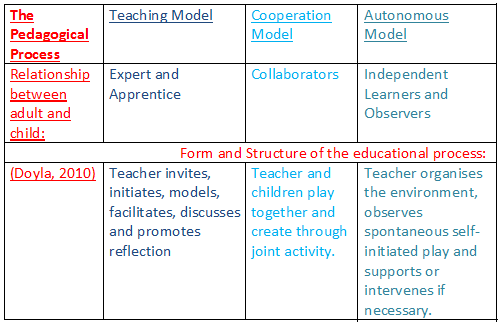 Piaget Vs Vygotsky Applications In The Classroom Teaching And Learning
Piaget Vs Vygotsky Applications In The Classroom Teaching And Learning
Sensorimotor stage -- age 0 through 2 years preoperational stage -- age 2 through 7 years concrete-operational stage -- age 7 through 11 years and formal operational stage -- age 11 through 15 years.
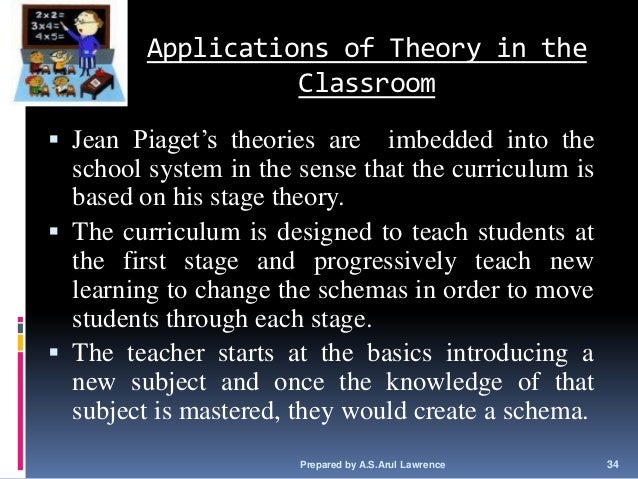
Piaget theories in the classroom. Part of his research led to the idea that every interaction establishes the cognitive structure of children. Because of this teachers must make special effort to arrange classroom activities for individuals and groups of children rather than for the whole class group. Piagets theory reflects his deep conviction that the development of intelligence can be seen as naturalistic and biological the result of a dynamic interaction between the child and the environment.
Make instructions relatively short using actions as well as words. Piaget and Children Lesson 3 Application of Piagets Theory in the Classroom In Lesson 3 we will apply what we have learned about how children learn and the stages of cognitive development proposed by Jean Piaget. This theory is based upon the idea that applying past experience and existing knowledge allows children to learn through free flow play and exploration of their surroundings.
Jean Piagets theories have played a significant role in education. Piaget did not conceptualise the child as emerging pre-equipped with innate ideas. Do not expect the students.
That is if we can discern that a student is significantly over or under-developed with regard to their particular phase of development we can seek out support for that child. Integration of Theory and TeacherChild Interactions Although Piaget is often remembered for his initial work describing developmental stages Lourenco. His theory provides a framework for understanding what might be happening when children acquire certain cognitive functions.
We can also work with children who are in a. This page analyzes and evaluates Piagets theory of cognitive development in regards to application to a classroom. As creator of this site I have conducted my own observations which further aids the understanding of the applicability of Piagets theory to classrooms today.
Comparison of Theories Now that the backgrounds of Piaget and Vygotsky have been examined a comparison of their theories can be made. Piagets theory focuses on development of a childs cognition through different stages. Jean Piaget the psychologist and philosopher said The principle goal of education in the schools should be creating men and women who are capable of doing new things not simply repeating what other generations have done Piaget developed a theory of cognitive.
Piaget constructed his modes. 0 to 2 years old. Piaget showed that a childs thinking is distinctly different from that of an adults thinking.
Piaget argues that every kid must pass through each stage in the same order and cannot skip a stage. This was discovered by Swiss psychologist and biologist Jean Piaget when he researched studied and developed his theory of cognitive development. These stages help teachers assess and best serve students in the classroom.
His theory includes four stages of comprehension in a childs growth. Vygotskys theories can be implemented in classrooms both administrators and teachers need to develop an understanding of the lives and theories of Jean Piaget and Lev Vygotsky. Piaget laid the foundation on cognitive human.
Classroom Activities That Relate to Piagets Theory of Cognitive Development. Piaget suggests that children will learn most effectively if they are given opportunities to explore through discovery learning Hansen 2012 p59. We will examine how his ideas may be.
It is in these last three stages where Piaget believed that educators and the classroom experience play a crucial role in the developing a childs awareness and growth. This is vital in the classroom scenario. The Complete Guide to Jean Piagets Learning Theories.
Piagets theory asserts that children go through all the same developmental stages however they do so at different rates. Jean Piaget proposed four stages of cognitive development. Piaget advocates learning as construction whereas Vygotsky.
Piaget 19641972 and Vygotsky is associated with the concept of the zone of proximal development Vygotsky 19341978 the theories of both men are much. To apply Jean Piagets theories in the classroom the University of Arkansas suggests these six steps to structure preoperational development. The idea that a child develops in stages has implications for education.
Every interaction and experience has an impact on development in early childhood. In terms of learning this can be applied to the speed at which things are taught. Babies are born into the world and immediately become aware of their.
What Is Piagets Theory of Development. Piaget studied knowledge development in people of all ages including young children and his theories are relevant for K-12 classrooms. From preservice teacher education to using technology in the classroom Piagets theory influences our understanding of how people and children more specifically learn.
Today many teachers still use Piagets theories to enhance students educations. He believed that the role of teachers and early years practitioners is to provide a. Preoperational Stage two to seven years old.
Up to this point the child has established that objects remain a. Use concrete props and visual aids whenever possible.
Halaman
The Borgen Project
The Borgen Project
Mengenai Saya
Cari Blog Ini
Arsip Blog
- April 202222
- March 202218
- February 202220
- January 202223
- December 202124
- November 202122
- October 202129
- September 202124
- August 202132
- July 202142
- June 202135
- May 202149
- April 202138
- March 202125
- February 202139
- January 202132
- December 202034
- November 202035
- October 202035
- September 202034
- August 202029
- July 202042
- June 202025
- May 202040
- April 202033
- March 202033
- February 202030
- January 202041
- December 201937
- November 201926
- October 201931
- September 201935
- August 201937
- July 201943
- June 201932
- May 201929
Label
- 1930s
- 1940s
- 2014
- 2015
- 2018
- 20th
- 40th
- aapc
- abbreviation
- abilities
- about
- absolute
- absolutism
- abstract
- academy
- accent
- accept
- acceptance
- account
- accounting
- achiever
- acics
- action
- activities
- activity
- adding
- address
- admission
- admissions
- adults
- advantages
- adverb
- africa
- after
- agent
- agents
- alarm
- alliteration
- alpha
- aluminum
- american
- analysis
- ancient
- anesthesiologist
- animal
- anova
- answers
- apartment
- apostles
- apostrophe
- apothecary
- appalachian
- application
- applying
- approach
- architecture
- area
- argumentative
- arguments
- around
- arrive
- arrow
- article
- articulate
- arts
- asfa
- assembly
- assessment
- associate
- associates
- asterisk
- asthma
- asvab
- attendant
- audio
- autobiographical
- average
- away
- bachelor
- bachelors
- back
- banks
- barrier
- barriers
- base
- based
- basic
- beautiful
- because
- become
- becoming
- been
- before
- beginning
- benchmark
- benefits
- best
- better
- between
- bible
- biography
- biologist
- biology
- black
- blast
- blends
- block
- board
- body
- bonaparte
- book
- books
- boost
- bridge
- buddhism
- builders
- building
- burp
- business
- calculate
- calculated
- calculating
- calculator
- calculus
- california
- called
- campus
- canada
- canadian
- cancelling
- candle
- capitalized
- caribbean
- carolina
- case
- cases
- catapult
- center
- central
- ceremony
- certification
- certified
- ceus
- chamberlain
- change
- chao
- chapter
- characteristics
- characters
- cheap
- check
- checks
- cheer
- cheerleading
- chemistry
- cherokee
- chinese
- christianity
- christmas
- cite
- citizen
- citizens
- city
- civic
- class
- classes
- classroom
- clay
- clothing
- clues
- cognitive
- collapse
- college
- colleges
- colonial
- colors
- come
- comes
- comma
- commas
- common
- communication
- community
- compassion
- composite
- compounds
- computer
- concentrate
- concepts
- conclusion
- conclusions
- conduct
- conference
- congressman
- cons
- consensus
- consequences
- considered
- consist
- consonant
- consonants
- contents
- context
- contextual
- continuing
- contrast
- contribute
- convert
- cook
- cool
- cords
- core
- cosmetology
- cost
- costumes
- council
- counselor
- count
- course
- create
- created
- creative
- credibility
- credit
- credits
- criminal
- criterion
- cross
- cultural
- culture
- cumulative
- cuny
- currencies
- currency
- curriculum
- curve
- curving
- customs
- deaf
- deans
- deceased
- define
- definition
- definitions
- degree
- degrees
- delegated
- delete
- delivery
- delta
- democrat
- deployed
- depot
- depression
- describe
- description
- design
- designing
- detect
- developed
- development
- deviation
- device
- devices
- diagraph
- dibels
- dichotomous
- difference
- differences
- different
- digraph
- digraphs
- diploma
- direct
- disadvantages
- disciples
- divinity
- doctor
- doctorate
- does
- double
- drawbacks
- drink
- dropout
- dryer
- dual
- duboses
- during
- eagle
- early
- easy
- economic
- economics
- edit
- education
- educational
- effective
- egypt
- elections
- elementary
- elements
- embassy
- emergency
- engineer
- engineering
- english
- englishmen
- equine
- erase
- erik
- esol
- essay
- establish
- esthetician
- estimate
- estimated
- europe
- events
- exam
- examen
- example
- examples
- except
- exchange
- excuse
- exercise
- experience
- experiment
- explained
- extracurricular
- extreme
- face
- facs
- factors
- facts
- fafsa
- fail
- failed
- failing
- fair
- fake
- fall
- farm
- farsi
- fashion
- fast
- federal
- felons
- female
- feudalism
- field
- figurative
- figure
- fill
- filling
- film
- final
- financial
- find
- fire
- firefighters
- first
- five
- fleur
- florida
- flunking
- fold
- food
- foods
- football
- formal
- format
- foster
- free
- french
- freud
- frog
- from
- full
- functions
- gaelic
- game
- games
- general
- georgia
- germany
- getting
- gift
- gifted
- give
- goal
- going
- good
- goodbye
- government
- gown
- grad
- grade
- graders
- grades
- graduate
- graduating
- graduation
- grammar
- grant
- grants
- gratis
- greece
- greek
- guide
- halloween
- handed
- handout
- hands
- handwriting
- happy
- hard
- harder
- hardship
- harvard
- have
- havelock
- hbcu
- heading
- health
- helen
- hellen
- hello
- help
- hemodialysis
- hexagon
- hidden
- hierarchy
- high
- higher
- highest
- highschool
- history
- home
- homecoming
- homesickness
- honor
- honoring
- honors
- hosting
- hours
- houses
- housing
- however
- humanities
- hunter
- hypotheses
- icebreaker
- ideas
- identification
- identifier
- identify
- illustration
- imperative
- importance
- important
- inaugural
- include
- inclusion
- indian
- induction
- industrial
- inference
- influence
- information
- Information
- informational
- informative
- inner
- innovative
- institute
- interesting
- interventionalist
- interview
- into
- introduce
- introduction
- invented
- invention
- inventions
- ireland
- irish
- islands
- issues
- italian
- italicize
- james
- japanese
- jeopardy
- jesus
- jobs
- johnson
- june
- junior
- juris
- justice
- keller
- kick
- kids
- kill
- kindergarten
- king
- known
- korean
- lady
- language
- latin
- lawyer
- league
- learn
- learning
- lectern
- legit
- lego
- lenape
- length
- lesson
- letter
- letters
- level
- life
- like
- limitations
- lineman
- lingual
- link
- list
- listen
- lists
- literal
- literature
- liturature
- live
- loans
- login
- long
- look
- louis
- love
- machine
- macroeconomics
- made
- main
- major
- majors
- make
- makes
- male
- males
- management
- many
- marine
- maslows
- massachusetts
- massage
- master
- masters
- mastery
- math
- mcat
- mean
- meaning
- measurements
- medical
- memorize
- menu
- merry
- mesopotamia
- message
- method
- methods
- metric
- mexico
- michigan
- middle
- midwest
- midwestern
- migrant
- military
- mindfulness
- minor
- minute
- mitchell
- model
- modeling
- modernism
- modification
- monarchy
- money
- moral
- morality
- morphemes
- motion
- moving
- much
- multiple
- myself
- mythology
- naia
- name
- names
- napoleon
- national
- native
- navy
- ncis
- nclex
- neck
- need
- needed
- needs
- neolithic
- neonatal
- netflix
- news
- nkjv
- nominative
- norm
- north
- noses
- note
- noun
- nova
- number
- numbered
- nurses
- nursing
- nwea
- observation
- occur
- offer
- often
- ohio
- online
- ontario
- opening
- opinion
- order
- page
- paid
- pajama
- paper
- paragraph
- parent
- parentheses
- parents
- part
- parthenon
- partial
- parts
- pass
- passing
- past
- pathology
- paul
- pearson
- pediatrician
- pell
- penn
- people
- percentage
- percentages
- percentile
- performing
- permanent
- personal
- pharaoh
- pharaohs
- pharmacists
- pharmacy
- pharmd
- phoenix
- phonics
- phonology
- photo
- photos
- physical
- physiology
- piaget
- piagets
- picture
- place
- placement
- plagiarism
- plan
- plans
- plastic
- play
- playlists
- plays
- pledge
- pledging
- plunger
- plural
- poems
- portfolio
- portrait
- position
- possible
- post
- postcard
- poster
- powerpoint
- powers
- practice
- praxis
- preamble
- predicate
- premed
- prep
- prepositions
- prerequisites
- preschool
- preschoolers
- prescriptive
- presentation
- president
- press
- previous
- primary
- printer
- prison
- private
- probability
- professional
- professor
- profile
- profiler
- program
- programs
- project
- projects
- prom
- pronoun
- pronunciation
- proper
- proposal
- pros
- psat
- psychologist
- psychology
- purpose
- qualities
- quantitative
- queen
- questions
- quick
- quit
- radiology
- radius
- raise
- rally
- rank
- rates
- reach
- read
- reading
- real
- realtor
- rebuttal
- receive
- recent
- recipes
- recipients
- recommendation
- reference
- referenced
- reinforcement
- reinforcer
- relate
- relevance
- renewal
- report
- reporting
- require
- required
- requirements
- reschedule
- research
- residents
- responsibilities
- results
- retail
- return
- reunion
- reviews
- revolution
- rico
- rides
- right
- river
- roaring
- romans
- rome
- room
- root
- ropes
- ruler
- rules
- running
- salary
- sale
- same
- sample
- sampson
- scale
- scam
- scenario
- scholarship
- scholarships
- schoolers
- schools
- science
- sciences
- score
- scored
- scores
- scoring
- scottish
- search
- secondary
- section
- sectional
- sell
- selling
- semester
- sending
- senior
- sentence
- sentences
- sheet
- ships
- shoes
- short
- should
- show
- siblings
- sigma
- sign
- similarities
- simple
- sing
- singular
- size
- skills
- skipping
- slide
- small
- smart
- smooth
- soap
- social
- society
- sociology
- softwares
- solar
- someone
- song
- sound
- source
- spanish
- speak
- speaking
- special
- speech
- speeches
- spell
- spelling
- sports
- spotify
- stand
- standard
- standardized
- stands
- stanford
- start
- state
- statement
- states
- statistics
- steps
- stone
- stop
- stove
- structure
- student
- students
- studies
- study
- studying
- style
- styles
- subject
- subjects
- submitting
- such
- suite
- summary
- summer
- sunday
- supplemental
- supposed
- surface
- surgeon
- surgery
- survey
- symbolic
- symbolism
- syracuse
- system
- tabe
- table
- tabs
- take
- takes
- taking
- tamil
- tape
- tassel
- teach
- teacher
- teaching
- team
- tech
- technical
- technician
- technology
- teens
- teepees
- tell
- terminology
- terra
- test
- testing
- tests
- texas
- texts
- thank
- that
- thea
- thematic
- theme
- themes
- theories
- theory
- therapy
- thesis
- theta
- they
- things
- thinking
- this
- three
- time
- timeline
- tipi
- title
- titles
- toddlers
- tools
- topics
- traditional
- traditions
- trainer
- training
- transcribe
- translating
- translator
- travel
- treasurer
- tribe
- tribes
- tribute
- trip
- trips
- troubled
- tuition
- tutoring
- twelve
- type
- types
- typing
- ucla
- under
- undergraduate
- uniforms
- united
- units
- universities
- university
- unleavened
- unweighted
- upload
- used
- using
- usps
- valedictorian
- valuable
- verb
- verbal
- verbs
- verizon
- verses
- very
- videos
- view
- virginia
- visa
- vivid
- vocational
- voice
- want
- ways
- weak
- weakness
- weaknesses
- weapons
- wear
- websites
- wedgewood
- weight
- weighted
- were
- what
- whats
- wheel
- when
- where
- which
- wiat
- wide
- wigs
- wildlife
- will
- window
- with
- without
- woman
- women
- woodcock
- word
- words
- work
- worker
- workers
- world
- worship
- worth
- would
- write
- writing
- year
- yearbooks
- years
- york
- your
- yourself
- zoology
